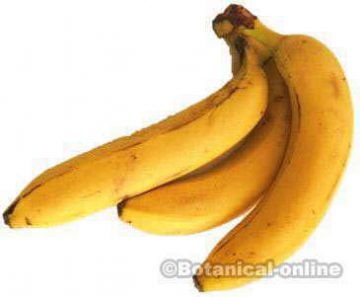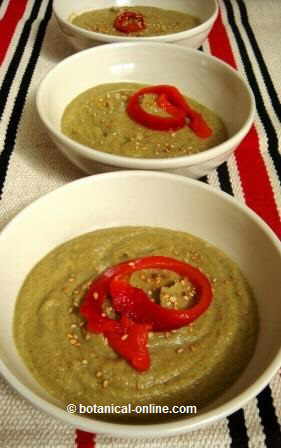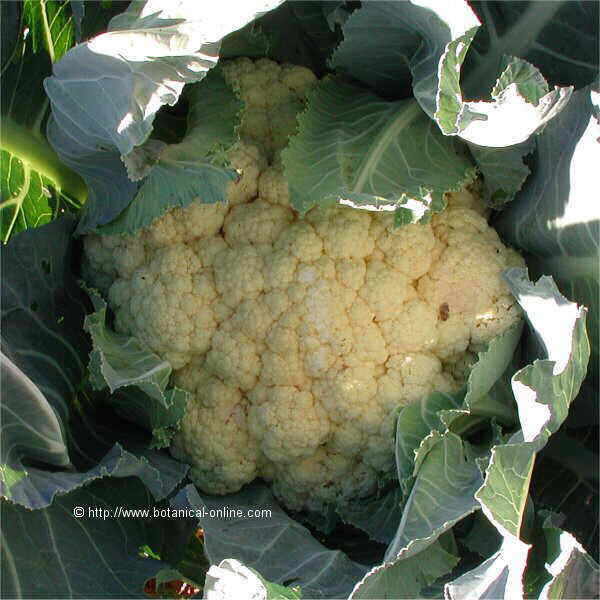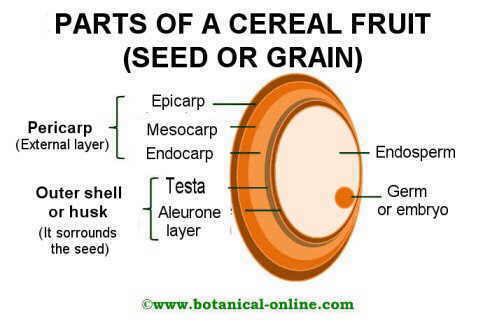Contents
What are the benefits of eating bananas?
What is a banana?

Banana (Musa spp.) is a tropical fruit native to Southeast Asia. It shows an elongated and curved shape, white pulp and smooth yellow or greenish skin, depending on the variety.
It has a very sweet and perfumed flavor, with a creamy and smooth texture. It is protected by a thick, yellow, hard and easy to remove skin, which makes it very practical to eat out.
Banana can be eaten alone, for breakfast or snack, between meals or after meals (fruits don’t ferment). Due to its sweet taste and good texture, it combines very well with all kinds of preparations, especially smoothies, fruit salads, sweet pastries, etc.
Nutritional value of bananas
Banana provides 90 calories (kcal.) Per unit, which is approximately the same as a large apple, a peach, or a bunch of grapes.
It is one of the fruits that contains the most sugar. People with diabetes should take into account that 1 banana represents 2 carbohydrate servings, so it is preferable, in these cases, to eat it outside of the main meals and not to combine it with foods rich in carbohydrates.
It is rich in fiber, which helps regulate intestinal transit and prevents constipation.
It is also a fruit very rich in potassium and magnesium, two minerals necessary for muscle relaxation, the functioning of the heart, fluid balance in the body, and the blood pressure regulation.
All this makes bananas very suitable for athletes, people with heart disease, hypertension, stress, poor circulation or in cases of digestive ulcers.
Is it good to eat bananas after sports?
Banana is good to recover energy and minerals after training or playing sports.
However, it should be taken into account that it does not provide protein. Athletes who eat banana for the contribution of potassium and magnesium, should accompany it with a food rich in protein like nuts, cheese, etc.
Because of the non-carbohydrate diet trend, some people mistakenly think that the sugar in fruits is fattening.
Eating fruits daily is the best protection against many diseases and for this reason no health professional recommends reducing the consumption of these foods.
Fruits, like bananas, have a high nutritional value due to their mineral and vitamin content. They also contain fiber, which helps regulate the absorption of sugar.
CHART OF NUTRITIONAL COMPOSITION OF BANANAS
| Composition of raw fresh bananas per each 100 gr. | |
| Components | Amount |
| Water | 74, 2 gr. |
| Energy | 92 Kcal |
| Fat | 0, 48 gr. |
| Protein | 1. 03 gr. |
| Carbohydrates | 23, 43 gr. |
| Fiber | 2, 4 gr. |
| Potassium | 396 mg |
| Phosphorus | 20 mg |
| Iron | 0, 31 mg |
| Sodium | 1 mg |
| Magnesium | 29 mg |
| Calcium | 6 mg |
| Zinc | 0,16 mg |
| Selenium | 1,1 mg |
| Vitamin C | 9,1 mg |
| Vitamin A | 81 IU |
| Vitamin B1 (Thiamin) | 0, 045 mg. |
| Vitamin B2 (Riboflavin) | 0,10 mg |
| Vitamin E | 0,27 mg |
| Niacin | 0.54 mg |
Main components of bananas
Source: USDA Nutrient Data Base
Bananas for a snack
They constitute an ideal snack, with a nutritional value superior to any type of industrial candy such as chocolates, light bars, etc. These industrial products are high in fat or, in the case of light ones, they are usually high in fat but richer in sugar.
In addition, although it is one of the richest fruits in carbohydrates, banana is not a food that contains many calories. It should be remembered that the fat banana content is almost zero, and that fats have more than twice the calories of carbohydrates.
With all this, it can be concluded that bananas are one of the best ways to nourish our body with plant energy.
Benefits of eating bananas
- Heart diseases: Potassium and magnesium, two abundant minerals in bananas, are very necessary for the heart muscle contraction, the balance of fluids in the body and in the blood pressure regulation. It is especially recommended for those who take drugs for hypertension that have a diuretic effect, to compensate for the losses of potassium that occur (potassium is very important for the heart)
- Digestive ulcers: Banana is suitable because it has properties in the prevention and gastric ulcer dietary treatment and for its ability to protect the intestinal mucosa.
- Depression: Bananas are rich in tryptophan, an amino acid precursor to serotonin. Because of its potassium and magnesium content, it helps in recovery in nervousness states, stress, insomnia and depression.
- Athletes: Due to its energy and nutritional value, it is highly recommended before sports, during competitions or marathons, for recovery after sports, for people with muscle cramps, athletes, etc.
![]() More information on bananas
More information on bananas







